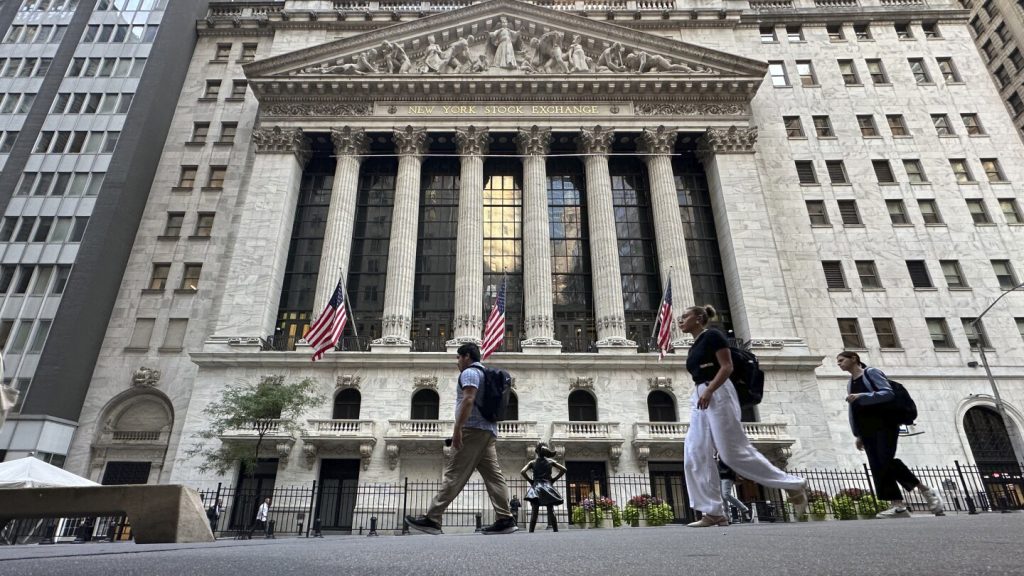U.S. stock indexes continued to decline on Wednesday, with the S&P 500 falling 0.2% and the Nasdaq shedding 0.3%, following a 2.1% drop the previous day. The Dow Jones Industrial Average managed a slight gain of 0.1%. This pullback came as a government report showed a surprising decline in job openings in July, indicating that hiring may slow in the coming months. Despite this, the overall employment market remains mixed, with hiring actually increasing last month.
The Federal Reserve is closely monitoring the employment market as an indicator of the economy’s strength, with expectations that the Fed will start cutting its benchmark interest rate at its upcoming September meeting. The central bank had raised rates to combat inflation, which has been easing under the higher rates while the economy remains strong. A weakening jobs market raises concerns about slower economic growth, but it could also alleviate inflation pressure.
Technology stocks were a significant weight on the market, with companies like Nvidia, Apple, and Intel experiencing declines. Energy stocks also contributed to the market downturn, with Exxon Mobil falling as the price of U.S. crude oil dropped below $70 a barrel. Health care companies such as Eli Lilly, Elevance Health, and Centene also saw declines. Additionally, U.S. Steel shares plummeted after signals that the company’s acquisition by Nippon Steel of Japan could be blocked.
Other economic reports this week, such as the Institute for Supply Management’s services sector index and the monthly jobs report for August, will provide a clearer picture of the economy for both the Fed and Wall Street. Traders are forecasting multiple rate cuts by the Fed by the end of 2024, with expectations that the rate could be cut by more than the traditional quarter of a percentage point at upcoming meetings. The bond market also saw a decrease in yields on both the 10-year and 2-year Treasuries.
Stocks in Europe and Asia also fell in response to the market downturn in the U.S. Dollar Tree experienced the biggest drop among S&P 500 stocks after slashing its earnings forecast, while companies like Hormel Foods and Nordstrom also saw declines. The inversion of the 10-year Treasury and 2-year Treasury yields, which historically signals a recession, has been standing for more than two years despite the growing economy. Traders and investors will be closely watching upcoming economic data and the Fed’s decisions on interest rates for further signals on the state of the economy.


